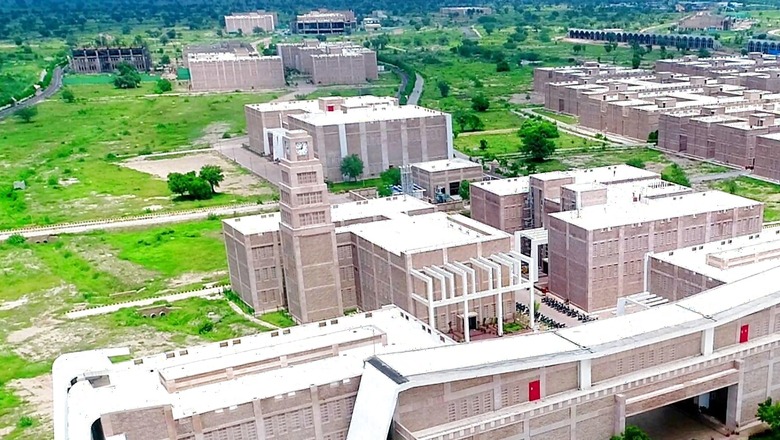
views
The Indian Institute of Technology (IIT) Jodhpur has launched Thar Desert Ecosystem Sciences Guided by Nature and Selection (Thar DESIGNS) — an initiative to conserve and restore the Thar desert.
Launched under the aegis of the Jodhpur City Knowledge and Innovation Cluster (JCKIC), the initiative aims to conserve the minerals and medicines, flora, and fauna found in the Thar desert by carrying out ecosystem phenomics through the transdisciplinary framework of medical, engineering, environmental, and life sciences.
“Thar DESIGNS aim to disseminate knowledge and encourage participation through a citizen science approach and inculcate design thinking across the entire collaborative network,” says Prof Mitali Mukerji, Professor, and Head, Department of Bioscience and Bioengineering.
“Thar is a hot desert, unique to the Indian subcontinent, and is characterised by high maximum temperature with large diurnal variations, scanty rainfall, extreme aridity, and intense UV radiations. This has been one of the largest natural laboratories for evolving innovative ‘designs’ that, ensure adaptation and survival of its constituent species, their interdependencies, and the conservation of the entire ecosystem,” explains IIT Jodhpur.
Deserts are crucial for the stabilisation of climate. Any shift in climate change can lead to maladaptations for organisms who live at the ebb of physiological extremes, loss of diversity, and ultimately an ecosystem collapse. Hence, to address this, the JCKIC has brought together organisations from the engineering, space research, medical, agricultural, zoological, and forestry who have carried out focused efforts in tackling diverse aspects of the Thar desert in an integrative framework.
Under this initiative, the researchers will use IOT enabled devices and big data analytics framework to crowdsource observations from the local ecosystem to the regional level, keeping the cultural context and traditional medicine knowledge in perspective.
They would also integrate computer vision and machine learning which will result in providing a ‘Desert Ecosystem Knowledge Grid’ that could foster the cycle of engineering-research-development-commercialization. This, in turn, will be helpful in finding solutions for the management of diseases common and endemic to desert regions, novel bioprospecting opportunities, and innovative bio-inspired engineering designs.
Read all the Latest News, Breaking News and Assembly Elections Live Updates here.




















Comments
0 comment